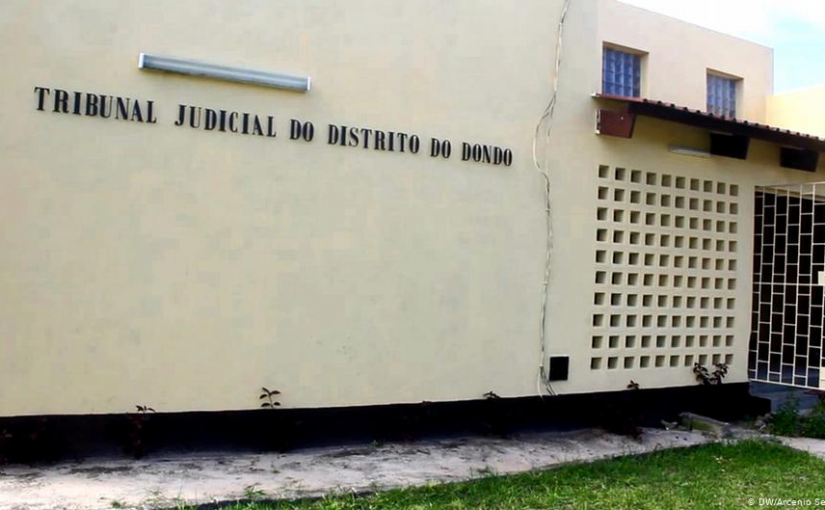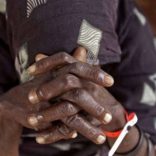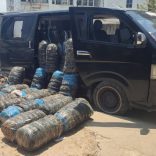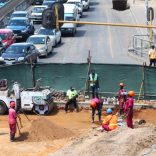Mozambique: 113 elderly people murdered in Inhambane province in first five months of 2025 - police
Mozambique: Conspiracy trial suddenly shut down to the media – AIM report

Dondo District Court. [File photo: DW]
The trial of six people accused of conspiring against the Mozambican state through their alleged support for the self-styled “Renamo Military Junta”, resumed in Dondo, in the central province of Sofala, on Friday morning, but without the presence of journalists.
With no advance warning, the judge closed the court to reporters, and, according to the independent television station STV, the only explanation given was that “very sensitive” matters would be discussed.
The trial began on 10 July, and initially there were no problems in press access to the courtroom. But the trial was interrupted on 24 July because the Criminal Investigation Service (SERNIC) was unable to present the witnesses required by the court.
It turned out that the provincial SERNIC officials were unable to explain supposedly key pieces of evidence. These are the phone messages between the accused prior to their arrest in early January. The messages, which are on discs, may throw some light on the alleged contacts between the accused and the Military Junta.
When the trial resumed on Friday, SERNIC experts from Maputo were present – but reporters were not allowed to hear their evidence.
It is unprecedented to bar journalists from courts in the middle of a trial. It is also arguably unconstitutional. The Constitution establishes that, in general, all trials are held in public. The only exceptions, when a judge may hold a trial behind closed doors, are “to safeguard personal, family or social intimacy or morality” (a reference to the need to protect the identity of the victims of rape or other sexual crimes), or when there is a threat to public order or to the security of the trial – none of which seems to apply in this case.
So far the prosecution case has been flimsy. The prosecution claims that one of the accused, Sandura Ambrosio, a former parliamentary deputy for the main opposition party, Renamo, had been financing the military junta. Several of the other accused had supposedly been recruited to take part in the Junta’s military activities. When questioned by the court, all denied the charges.
Nothing had been produced in open court to prove that any of the six were working for the Junta. Perhaps the discs, when decoded by the SERNIC experts, will provide such proof. But the very fact that this evidence is being given in secret robs it of credibility.












Leave a Reply
Be the First to Comment!
You must be logged in to post a comment.
You must be logged in to post a comment.